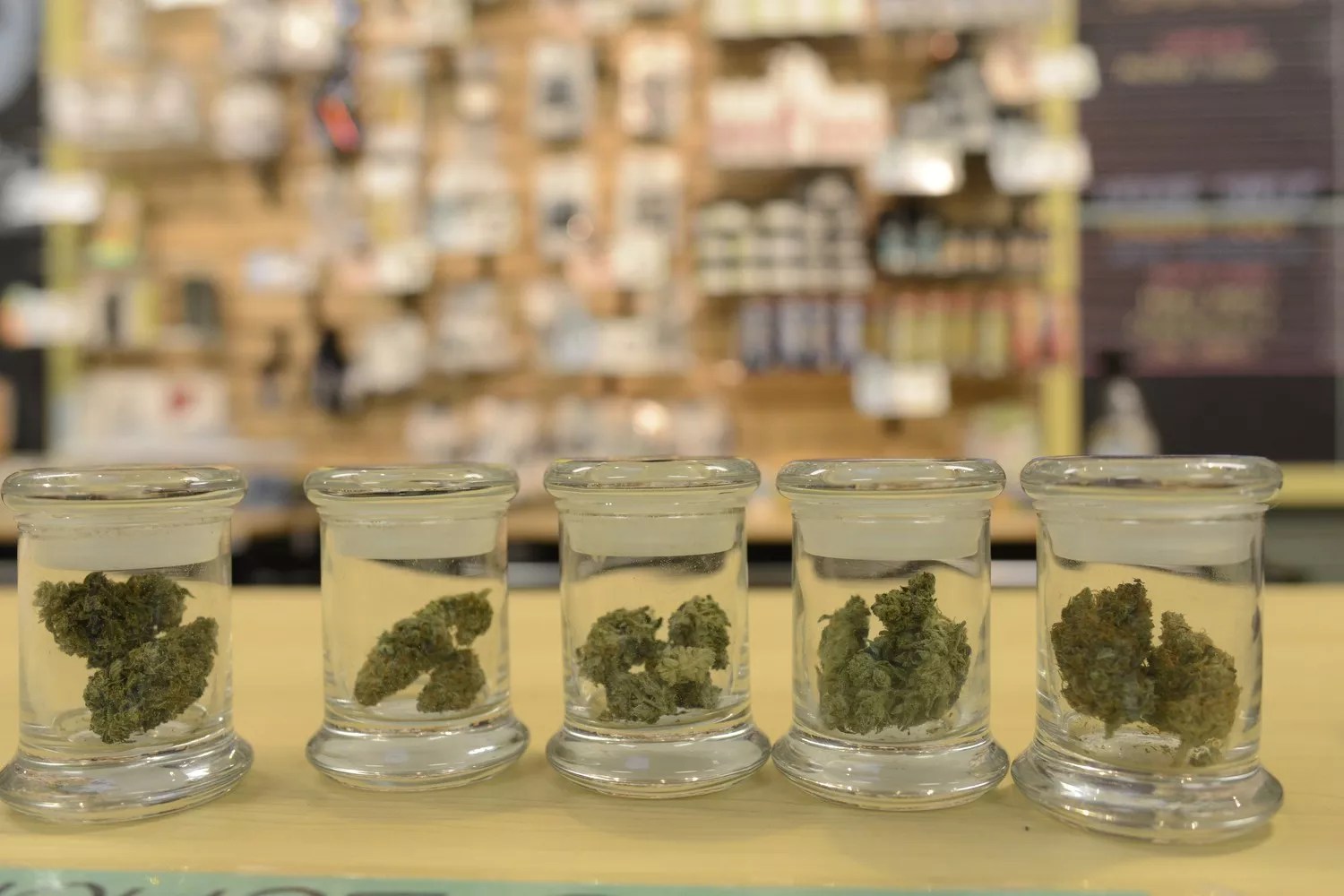
Scott Lentz

Audio By Carbonatix
Operational fees for Colorado’s 2,700-plus registered marijuana business licensees are definitely going up. In an announcement sent to marijuana business owners on July 5, the state Marijuana Enforcement Division confirmed that it had adopted the increased application and licensing fees as of July 1. The price hikes, which will average about 8 percent, were adopted as the MED faces its first negative cash balance since recreational pot sales began in Colorado in 2014.
Most marijuana business owners opposed the proposal to increase fees, since Colorado’s pot industry is dealing with its first sustained recession. However, the MED and its overseeing authority, the Colorado Department of Revenue, depend on business fees for funding their marijuana-related efforts.
Created to regulate Colorado’s first-of-its-kind recreational marijuana industry, the MED has received operational money from the state legislature in the past, but the majority of its funding comes from licensing fees and fines on dispensaries, growing operations and other legal pot businesses. That funding is falling short, though, as inflation and rising government salaries increase program expenses, according to DOR Executive Director Mark Ferrandino (who’s about to become the head of the state Planning and Budgeting office).
The MED memo notes that companies with “highly complex” ownership groups, such as publicly traded corporations, qualified private funds and trusts, will have higher fees than independent and individual owners. On average, a recreational dispensary license will go from $4,940 to about $5,930, with yearly renewal fees increasing a little over $150, or around 7 percent, and licensing fees for new employees (paid by business owners) also rising.
Owners who are registered under a social equity marijuana designation – a state-approved program intended to support communities impacted by the drug war, with mixed success – will see a significant decrease in the price of their application and first renewal.
“There are new levels of fees related to ownership structures to match the complexity and increased workload that accompanies more complex ownership structures,” the memo reads.
After breaking $2.2 billion in 2021, Colorado marijuana sales have been in a downward spiral. Wholesale prices have sat at record lows since last July, and dispensary sales dropped 21 percent from 2021 to 2022, according to DOR data, which shows that 2023’s numbers are even weaker.
Business and job totals have been falling off sharply, as well. The number of marijuana business licenses dropped from more than 3,500 in 2021 to around 2,700 as of last month, according to DOR data. Earlier this year, an industry job analysis by cannabis recruiting firm Vangst showed that Colorado’s marijuana workforce dropped almost 30 percent from 2022 to 2023.
The Marijuana Industry Group, one of Colorado’s largest marijuana trade organizations, calls the decision to raise fees “a serious blow” to business owners.
“Our sales are down by nearly $100 million, and a recent jobs report showed that the industry lost more than 10,000 Colorado jobs last year. This means countless programs Coloradans care about, like education, affordable housing, mental health and substance abuse treatment and public safety are losing significant amounts of funding as well,” says MIG Executive Director Truman Bradley.
While there have been no layoffs from the MED’s staff of 105 employees, the DOR hasn’t refilled vacant MED positions, according to Ferrandino. The department has also reduced the size of the main MED office in Lakewood and will be closing the MED’s Colorado Springs and Longmont offices in an effort to save money.
According to the MED’s July 5 announcement, state regulators are still open to feedback from industry stakeholders, and the fee increases and other “emergency rules” deemed essential by the MED won’t be fully implemented for three months. But Bradley says that the industry hasn’t been making any headway with its ideas.
“As an industry, we have submitted several ideas to MED that we believe could significantly reduce costs without jeopardizing health and safety, but to date we haven’t received any response, and then we’re hit with this news. It’s also important to remember that due to [IRS code] 280e, Colorado cannabis business owners pay an effective federal tax rate of 75 percent, which of course MED is aware of,” he argues. “The bottom line is, as we watch more and more Colorado businesses close their doors across the state and more and more states across the country legalize, we really aren’t sure how much more the industry in our state can take.”
Colorado first created commercial pot licenses in 2010 for the burgeoning medical marijuana industry. Until this year, the only increase in fee costs came in 2012, when the MED created recreational marijuana licenses after the passage of Amendment 64.
Conversations about fees are likely to become more common, Ferrandino predicted at a MED meeting in June, when he predicted that the just-announced bump would “probably be one of the more significant ones.”